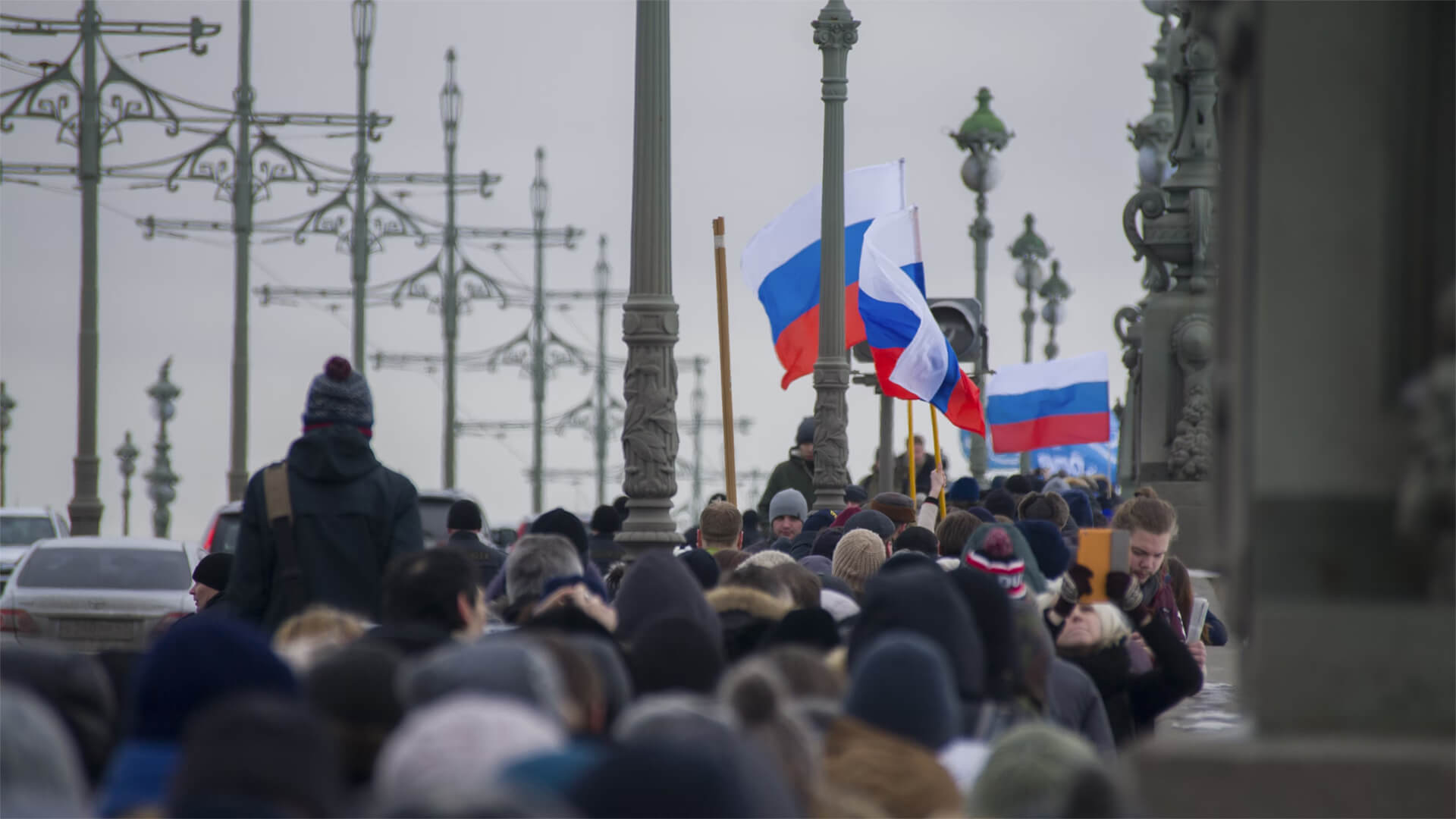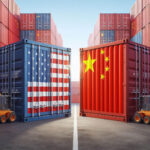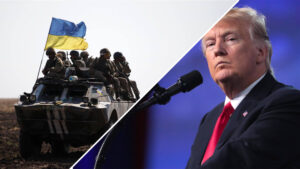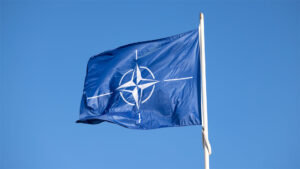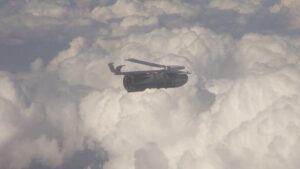Building on yesterday’s video, we’ll be talking about the future of Russia following its collapse. So, what can we expect the Russia after Russia to look like?
Russia’s stockpile of weapons and tech is being drained in Ukraine and the leftovers won’t be of interest to other countries, so military tech in Russia is on its last leg. Most of the skilled labor would leave and it wouldn’t be surprising if security/intelligence personnel turned to crime. Disruptions to resource extraction and agriculture would likely cause an economic meltdown. Minority groups would make a push for independence. And of course, you should expect to see plenty of countries attempt to reclaim old land or try to command influence.
Regardless of how the Ukraine War plays out, Russia is on borrowed time. As the clock counts down, we will certainly see a reshaping of European geopolitics.
Here at Zeihan on Geopolitics, our chosen charity partner is MedShare. They provide emergency medical services to communities in need, with a very heavy emphasis on locations facing acute crises. Medshare operates right in the thick of it, so we can be sure that every cent of our donation is not simply going directly to where help is needed most, but our donations serve as a force multiplier for a system already in existence.
For those who would like to donate directly to MedShare or to learn more about their efforts, you can click this link.
Transcript
Hey everybody. Peter Zeihan here coming to you from Bell Block. Today we’re taking an entry from the Ask Peter forum on the Patreon page. And specifically, what would I anticipate? The former Soviet space must be the Russian space to look like in the aftermath of a Russian collapse. Before I get into the details of that, let me emphasize that I don’t see this happening this year or next year or anytime this decade.
The Russian demographics are horrid, and the war in Ukraine is not going well. And I do certainly expect to see a Russian collapse in my lifetime. But that doesn’t mean it’s just around the corner. We have to see a political break in Russia where the Putin regime fails. And since Putin has basically gutted the system of anyone who is theoretically capable of replacing him, we will then have a leadership struggle and probably a civil conflict that ends in national collapse.
That’s not imminent. Barring a massive, military defeat in Ukraine in the near term. Anyway, with that said, here’s how it goes.
We are taking an entry from the Ask Peter forum on the Patreon page today. And it says With Russia and demographic collapse, what does the post Russian space look like? Are the countries moving in or are there things we need to worry about? And the short answer is yes, those things.
Let’s start with the easy stuff. When an empire dies, when a country dies, there are certain parts of it that live on in another form. That was certainly true of the Soviet Union. And that will be true of post-Soviet Russia as well. So, first of all, the technology, Russia has been a military power for quite some time.
During the Cold War, they were clearly the second most powerful military in the world. But as you’ve noticed in the Ukraine war, the shine has come off. And Russia’s ability to produce at scale, its own technology has been proven to be woefully lacking. They’re more advanced tanks that can only make one at a time. They’re more advanced jets.
They’ve only made a dozen in total in the last 15 years. So the capacity of that to be transferred to another power is very limited. We’ve discovered over the course of the past few years that the Chinese aren’t sophisticated enough to copy the more advanced stuff and all the countries that have the technical skills to do it.
Places like Poland or Ukraine or the Czech Republic or Hungary, would rather work with Western technology, which is more effective, advanced, has higher range and lethality rates and all that good stuff. So If it isn’t been built already, it’s not something that I really worry about because all of the industrial plant that the Russians have simply is wildly inefficient.
They can’t staff at themselves. And everyone who could staff it would rather work with something that’s better. So for most of the military hardware, this is just going to fade away pretty quickly. Also keep in mind that the Russians are burning through everything that they can make in the Ukraine war. So it’s not like there’s going to be a big stock of modern war, material that anyone else could pick up and run with.
Which brings us to the second point. The skilled labor. Even with a million men fleeing the country in, the aftermath at the beginning of the war and even with the Russians having lost somewhere between 300,000 and 800,000 men since then, you know, data varies wildly based on your propaganda story. There are still a lot of Russians that have technical skills.
Now, this is something we know exactly what to look for, because it’s already happened after the Soviet collapse. Somewhere around 10 million, Russians, most of them with more advanced degrees, left the country and never returned. And we’re probably going to see something like that again. But it won’t be nearly as dramatic as last time, because there are no longer 10 million people with advanced degrees left in the country.
The Russian educational system collapsed. Technical educational system collapsed, actually, before the Soviet Union collapsed. And there was never rebuilt. Post-Soviet. So we’re only talking about a low single digit million number of people who could even theoretically leave in the first place that have a skill sets are relevant. And since those skill sets, for the most part atrophied under the post Russian system, under Putin, they won’t have nearly the impulse for growth or activity, that the original one did 35 years ago.
So noticeable, but not huge. And that includes people from the intelligence services who might go into business for themselves. Now, if you guys remember back to the early 1990s, there were a lot of movies where the bad guys were former Russian intelligence agents, former Central European intelligence agents and former South African intelligence agents.
And that really did reflect reality, because you had these giant institutions that were built on domestic control with the personnel to go with them, that all absconded and went into crime for themselves. Around the world. Now that will definitely happen again. But just like with the more technically minded folks, the pool is a lot smaller. It’s going to be more akin to what’s happening with the Syrian dissolution.
It’s the people who maintain security in Russia today are not the FBI technocrats that existed 40 years ago. They’re more like the thugs of Syria. People who, in order to pursue their own power, have decided to take their skill set and go elsewhere. But they’re not good at signals intelligence. They don’t have the connections around the world. But the old Soviet operators or South African operators had.
So basically, you’re just going to get a bunch of sociopaths who are going to head out and try business for themselves. And to be perfectly blunt, if you were good at that, you would have done it in the 90s. And Putin’s system is not like the Soviet system, which was based more or less on meritocracy. It’s more based on a Trumpian sense of loyalty to a person, and that is not a particularly marketable skill once the ship goes down.
So that takes care of the stuff that can leave. What about the stuff that stays? Russia is arguably the most resource rich country in human history. It is an absolutely massive place. And even in the best of times, huge swaths of the territory are empty. And that is so much more true now than it was during the Soviet times.
During the Soviet times, you had your primary cities of Moscow and Petersburg, and then you had a wave of secondary cities, and then you had the countryside. What we have seen in the post-Soviet collapse is the countryside. People have left to go to the secondary cities. The secondary cities have become hollowed out to go to Moscow and Saint Petersburg.
And so instead of maybe having 15% of the country that has a reasonable population density, it’s really closer to 5%. Now, with two cities being larger than they’ve ever been in history. Well, everything else has shrunk into obscurity. You take that population pattern and you remove the structures that allow civilization to function. And we’re probably going to have large parts of the Russian space that currently grow crops.
Stop. What we have seen in Russian agriculture in the last 40 years is you can split the farms basically 4 to 1. Four is the old Soviet style. So roughly 80% very input intensive, wildly inefficient, using mostly local inputs. And the remaining 20% are more what they call enterprise farms, where they bring in Western equipment and technology and inputs.
And those Western oriented farms, are much more productive and generate a lot more income. And probably in terms of calories, generate actually more than the other 80% put together. The problem is, and they’re in the best land, the problem is that 20% is completely dependent upon those international allies supply chain systems, and very few of them are on the borders of the country.
So if Russia breaks down to the point that the 20% the enterprise farms cannot access the inputs they need, they’ll stop functioning or will go back to functioning like the other 80%. So we’re going to see a pretty significant drop in the ability of the Russian area to generate food product as the Russian system loses coherence. I don’t think that will lead to widespread famine or anything, but they’ll certainly be distribution issues, which has always been a Russian problem.
And it suggests that the ability of Russia to maintain a population that’s even less than it has now, might be somewhat constrained when that happens, the mineral output of Russia falls into very dire straits, because most of this stuff is nowhere near where the people live. The nickel, the Palladium, the platinum, the other platinum metals. They’re all up in the high Arctic, say the Cola peninsula or around Norilsk in north central Siberia.
All the gold is out. In eastern Siberia, the oil is in the permafrost, and the infrastructure that is necessary to access and extract out these materials really does require a lot of industrial age maintenance. And it’s maintenance that the Russians have had a hard time doing themselves. On the production side, the Russians have seen their educational system collapse to the point that you only really have a small number, just a few dozen of Russian nationals who were trained abroad over the last 20 years who are keeping this thing going.
And again, they need a lot of Western technology to keep it flowing. So what usually what happens is the Chinese buys, say, the drilling rigs, and then they sell it on to the Russians, a second hand materials. Anything happens to that, the stuff falls apart. So if there is going to be a play for Russian production, you’re talking about a foreign power having to come combine with capital, with technology, with security, and run basically a neo style colony in order to produce the stuff.
And some of the harshest operating environments in the world. And if that infrastructure is dependent on a link back to Russia proper, then the Russian government that remains whatever that looks like, will have a say in it. And so that probably won’t happen at all. So it’s only the stuff on the extremities that might be able to still function.
So you’re talking about the Russian high Arctic, say Sakhalin Island out in the, Far East theater and maybe some select things in East Siberia. Beyond that, it is really hard to see anyone making a mineral play here, because everything is just so far damn away. And if you were to do that, like, say, let’s say you wanted to go take over something in a gold mine in eastern Siberia, you’re talking and have to building a supply chain through an area that is really only supplied by air.
And the chances for everything to go wrong are robust. There is one other consideration.
That’s an ethnic angle to a breakup.
Russia’s population by Russia’s statistics, which are higher than reality would suggest and indicate that it’s a more cohesive nation state than the reality would suggest. Even then, they claim that 20% of their population is not ethnic Russian, with the single largest minority being Turkic minorities. These minorities are kind of concentrated in three general areas. Siberia. In the West, where you’ve got a lot of,
pockets of Germans and especially Ukrainians, and then down in the south where you’ve got, Tartars and bash queers and Chechens and English and the rest, if we’re going to see a meaningful break in the Russian system, a lot of these groups are likely to try to go their own way.
And the ones to watch the most are the ones that are either close to a border, or they may have a foreign sponsor or the ones that are on key pieces of infrastructure or transport corridors, which means that they could actually make a go of it themselves and actually extract, concessions from the ethnic Russians around them. And the second group, it’s the Tatars in the Basque year that are by far the ones you should watch the most.
They live in an area just to the northwest. Kazakhstan. And they sit on all the connecting infrastructure between Russia and Siberia. So if they were to break away, there goes all of Siberia. And they also have significant energy reserves, some cells that they broadly know how to produce and process themselves. Now, there’s still over a thousand miles away from any potential export market.
So that’s not a a clean fix. But if anyone from a technical point of view can make it a go of it, it’s these places. Because these places never saw their technical folks, flee after the Soviet system. They stayed home, the other groups are the ones that are really close to the external borders. And of course, the caucuses are at the top of that list.
And that’s where the Chechens are. And here the country to watch is Turkey, because all of these, almost all of these minorities are Turkic in nature. And the Turks were very active in sponsoring the first and the second Chechen wars in the caucuses, and the idea that central power in Moscow would crack, and they wouldn’t have an interest in expanding their sphere of influence into the caucuses, is kind of silly.
Also, keep in mind that if the Russian republics on the north side of the Caucasus mountains were to go their own way, then that would basically break Russia’s ability to control not just the Caucasus, but would really hurt Ukraine as well, because it’s all part of the same population. Band. So good for everyone except for Russia proper.
The final little piece to keep in mind is in the extreme northwest, where you have a number of, Turkic minorities. If you remember your recent history back in World War Two, the Finns were one of the first countries. Finland was one of the first countries that Russia attacked. And while it was never formally an ally, if anything, it cooperated more with the Nazis because it was in the same theater.
And at the end of the war, we saw the Soviets basically gobble up territory that at one point housed one quarter of the Finnish population. We like to think of the Finns as neutral. We like to think of the Swedes as, you know, attractive, but kind of in their own world. We forget that the Scandinavians got started as fucking Vikings.
And now that they’re no longer, strategically neutral, now that they’re active in the Western alliance, they’ve rapidly emerged as some of the most aggressive allies that the United States has ever had. And unlike countries in Central America whose militaries were defunct when they joined, these are countries that have a very robust military tradition that is very, very current.
So when and if the Russian state breaks, I can guarantee you that we’re going to see a new iteration of Scandinavian Vikings going back into the Russian space, in many cases just to get their land back. But I would be shocked if that’s all they did keep in mind that the original Vikings that went up the rivers are the ones who probably found in Kiev and certainly Moscow, and in the last great war that we saw in the region that involved Sweden.
The decisive conflict that broke the Swedish empire happened actually in Ukraine. So when the Russians started to invade Ukraine again, it started history moving in Stockholm and Helsinki and the rest in a way that I don’t think the rest of the West really appreciates.
And regardless of how the Ukraine war goes, we’re going to be seeing the next chapter of this little bit of history in the decades to come.

